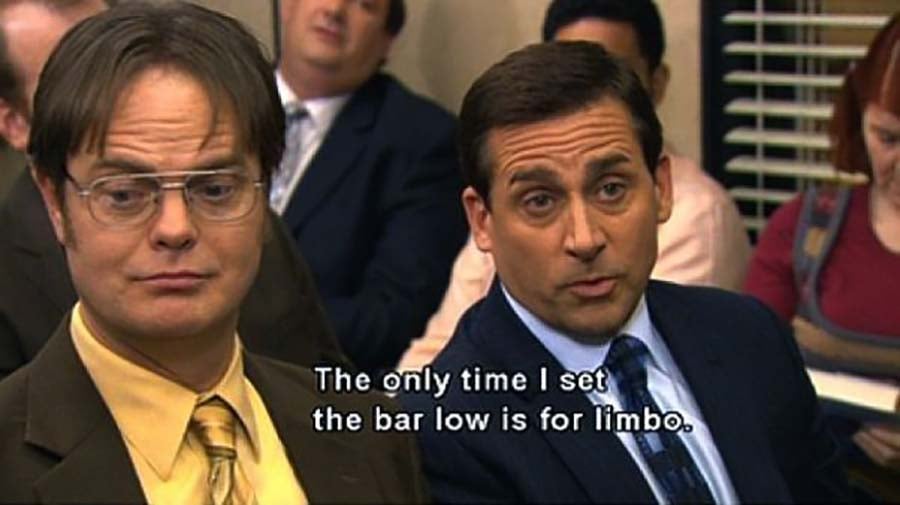When sales managers fail their sales teams, every stakeholder is harmed. First, the salesperson is harmed by not being successful in sales. The salesperson’s family may also suffer without the resources they need. The salesperson’s prospective clients are hurt because the person they are dealing with is not using value creation strategies, which would have caused them to buy from the salesperson. Finally, the sales organization misses the revenue they need to achieve its sales goals.
What follows here is an exploration of the character traits and behaviors that cause sales managers to fail their team, their company, and their prospective clients. Successful sales teams don’t have sales managers with these attributes.

The Need to Be Liked
A sales manager who wants their sales force to like them is almost certain to fail their team. Needing to be liked can cause sales leaders to allow their team members to do what they want to do, how and when they choose. Sales managers with this characteristic do not insist their sales representatives do the right work, in the right way, at the right time—which is the sales manager’s job.
As a sales manager, it is okay to be liked, provided you are liked for the right reasons. You never want to be liked for not requiring your team to do the work, especially the work they resist. You want to be liked for helping each individual improve their sales performance and success.
Conflict Aversion
Conflict aversion causes sales managers and their sales teams to fail. Rather than addressing the sales force or individuals who are failing, the conflict-averse sales manager avoids the conversation and the inevitable friction that is necessary.
Failing to engage in conflict is the reason salespeople fail, which affects all stakeholders. A better sales manager would wade into the conflict to set things right before the salesperson harms themselves and their company. You have to trade comfort for conflict if you want long-term success, always helping your sales team.
The Failures That Lead to Greater Failures
Here are some of the many failures that cause greater failures in the future and prevent salespeople from closing deals and meeting their sales targets.
Low Standards
A leader in any role is responsible for the standards they expect of the people in their charge. Low standards or no standards will eliminate any possibility of reaching your goals, let alone maximizing the full potential of your team. No leader should allow a low standard. If you can remember a person who helped you see something inside yourself and raise your standard, you know what good leadership looks like.
Some important person in your life didn’t go easy on you because they recognized your potential. It may have been a teacher or a coach that expected more from you than you thought possible. Success requires you to raise your standards.
Poor Prospecting Practices
When a sales manager has characteristics that fail their sales team, prospecting is the first thing to suffer. A weak sales manager unwilling to address poor prospecting practices will fail to create new opportunities and build a robust and healthy B2B sales pipeline.
New salespeople who enter an environment where they watch senior salespeople living on a few large clients provide a poor example for new hires. These senior sales reps are coasting, collecting a commission that is more like an annuity. Everyone with a sales title has the responsibility to prospect and create new deals. Any sales manager who allows poor prospecting is harming their sales force.
Lack of Accountability
You should want a positive sales culture, one built on sales accountability. A sales manager unable or unwilling to build a culture of accountability will fail their team, and over time, the sales manager will fail as well. A lack of accountability is a sign that a sales manager is failing their sales team.
In B2B sales, we give salespeople a tremendous amount of autonomy. Accountability is the counterweight to this autonomy, balancing it with the discipline that prevents salespeople from failing. In Leading Growth: The Proven Formula for Consistently Increasing Revenue, two chapters are devoted to creating a positive culture of accountability. By studying the strategies, you can install accountability and learn to use humane consequences as you build it. Leading Growth provides guidance for improving sales leadership skills that support sales team success.

Not Providing a Modern Sales Approach
Any salesperson who suggests they have their own selling style is disclosing the fact that they are winging it. In my experience, these are the salespeople who will tell you that their mother told them that they could sell ice to an Eskimo. Little Jimmy may have gotten his way with his adoring and devoted mother, but buyers and decision-makers are not going to be charmed by grown-up Jimmy.
One of the sales manager’s roles is ensuring everyone on their team sells in the way that best serves their clients and wins deals. They cannot be left with an inability to create value for their contacts and stakeholders. Too many sales teams are still selling under a transactional sales model, one that causes salespeople to lose deals. Most teams using this approach cannot even get past a first meeting. You can and should ensure your team uses a modern sales approach. Otherwise, they will not succeed.
No Training or Development
When you are building a sales team, it is important that you provide sales training, which includes ongoing training, development, and coaching. Yet, sales managers fail to skill up their sales force, believing they know all they need to know to sell successfully. This is why sales is broken.
There are new fundamentals in B2B sales necessary for selling in the 21st century, but most sales organizations don’t know they exist. Most sales processes in use today need to be updated with modern strategies and sales frameworks that reverse the poor outcomes that lead to an unhealthy sales funnel. Training on a modern sales approach will improve your contact’s B2B sales experience and lead your team to greater success.
Sales managers harm their sales force when they don’t provide appropriate training. Modern sales is difficult, and success requires complex sales training.
How to Stop Failing Your Team
This is the impact of poor sales management on sales team performance and individuals. All of these common mistakes lead to poor sales team performance, which harms the sales force and those who depend on them. They are the warning signs of sales manager failure.
Unfortunately, sales managers don’t often receive the training and development that would help them to support their salespeople in a complex buying and selling environment. If you need help improving your results as a sales manager, you can go here for additional help.




.jpg?width=768&height=994&name=how-to-lead-ebook-v3-1-cover%20(3).jpg)
